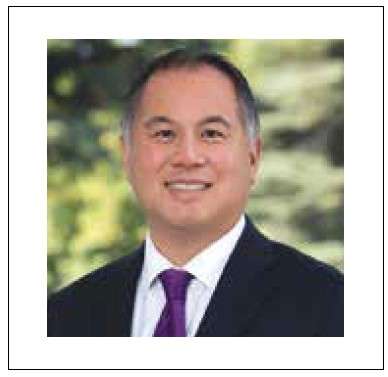
By Assemblymember Phil Ting–
It’s hard to believe that 2022 is almost over. As we get ready to start a new year, I wanted to let you know about a few state laws that I championed taking effect on January 1.
At the top of the list are two bills that aim to bring more fairness and equity in the way some of our traffic violations are handled. The most significant is how jaywalking will be enforced throughout California. AB 2147/The Freedom To Walk Act allows people to safely cross the street outside of an intersection when the roadway is clear of moving vehicles. Law enforcement will still be able to issue a citation, if the pedestrian is causing a hazard.
Jaywalking tickets have been disproportionately given to people of color. Sometimes such police encounters can turn deadly or lead to serious injury. These consequences are just too great. In addition, the fines are ridiculous and can total hundreds of dollars, severely hurting the budgets of lower income families.
Crossing the street shouldn’t be a crime. The auto industry pushed jaywalking laws nearly a century ago, which only serve them, not pedestrians. I’m glad we’re starting to re-evaluate our streets and prioritizing walkers. Virginia already prohibits officers from stopping a pedestrian just for jaywalking. And in Nevada, it’s no longer considered a misdemeanor.
Next, AB 2594, seeks to reform the way late fees and penalties are assessed for bridge and road tolls. When the system completely removed cash toll takers and moved to 100 percent FasTrak at the beginning of the COVID-19 pandemic, it left unbanked individuals with very few options to pay without a credit or debit card. The added late fees and penalties to unpaid balances grew exponentially. In one instance, an East Bay driver’s balance reached more than $30,000. Only $2,500 of that was in actual toll fees.
Starting January 1, agencies must notify violators of a new program coming this summer that allows late fees and penalties to be waived, if drivers settle their toll balances. They must also create in-person payment opportunities. In addition, the DMV must notify customers changing their driver license address to also do so on their vehicle registration, so that notices go to the right place.
On the environmental front, consumers will see safer fast-food packaging in the new year. AB 1200 bans PFAS, or perfluoroalkyl and polyfluoroalkyl substances, from to-go containers and wrappers that are often used to keep grease and other liquids from leaking out. It was passed in 2021, but companies were given until 2023 to comply.
PFAS is a class of roughly 9,000 man-made chemicals linked to health problems, including cancer, hormone disruption, thyroid disease, and vaccine interference. When they come into contact with food, consumers ingest them. McDonalds, Taco Bell, Chipotle, Panera Bread, Whole Foods, and Trader Joe’s are already phasing out PFAS-laced wrappers, boxes, and other similar products, or have committed to the goal. New York, Washington, and Maine have enacted a similar law prohibiting the use of PFAS in food packaging.
I was just sworn-in for my sixth and final two-year term and will continue to prioritize making California a better state for everyone. I hope you and your family have a wonderful holiday season and a great 2023.
Phil Ting represents the 19th Assembly District, which includes the Westside of San Francisco and portions of South San Francisco along with the communities of Broadmoor, Colma, and Daly City.
Published on December 15, 2022
Recent Comments